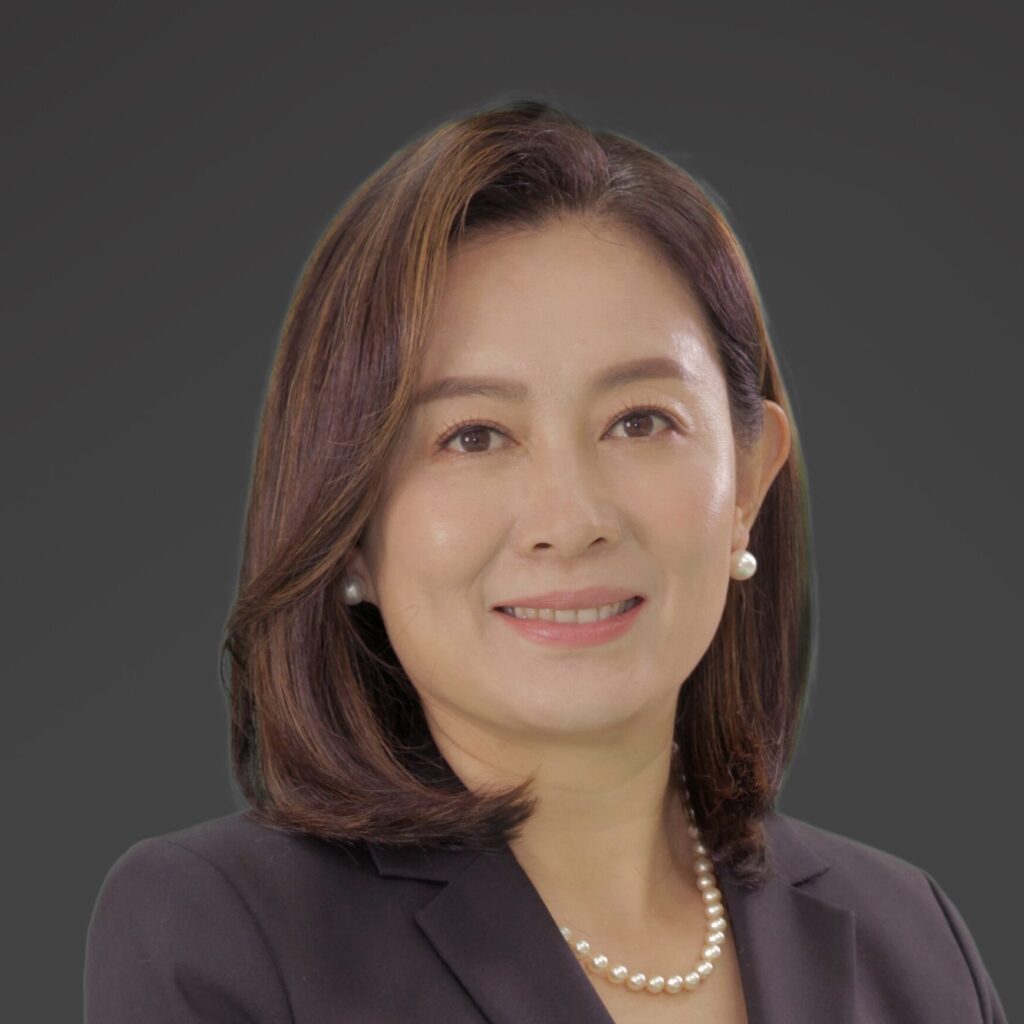In CAPRI’s first event of 2023 with the Miller Center at the University of Virginia, Matt Pottinger and Yen Pottinger discussed the successes, failures, and continuing challenges in managing the COVID-19 pandemic. When CAPRI’s international team assembled in 2021 to conduct research on the post-pandemic world order, many people worldwide believed that we had reached a turning point in the COVID-19 pandemic. Vaccine coverage was increasing in many countries, domestic restrictions were beginning to loosen, and international trade and travel began to recover. However, the world has since learned that COVID-19 is not so easily managed. We now know that SARS-CoV-2, the virus that causes COVID-19, can rapidly evolve, becoming more transmissible and evading the protection of vaccines. As governments were attempting to balance protecting public health and enabling normal economic and social life, CAPRI organized this event to explore whether the lessons from the pandemic were being applied across all areas of public policy.
Prof. Syaru Shirley Lin of CAPRI began the discussion by asking what China’s rapid dismantling of COVID-19 restrictions meant for the fourth year of the pandemic. Matt Pottinger, former US Deputy National Security Advisor, recognized the efforts by doctors and journalists in China to communicate with the world about the mysterious illness that would become known as COVID-19. Dr. Yen Pottinger, a virologist and technical laboratory advisor at Columbia University who has advised the US Centers for Disease Control and many governments’ ministries of health, observed that China had insufficiently prepared for its reopening over the last three years. “China’s COVID story is still playing out…there was little preparation for this period, unfortunately.”
In late 2022, CAPRI contributed research to Brookings’ Democracy in Asia Project on the role of democratic institutions and political culture in responding to pandemics. On that topic, Matt Pottinger offered insights he gained while working in government. “There is a tendency in all societies to assume that political decision-making is an obstacle to letting experts lead the response to a crisis. This is the wrong model.” Pointing out where policy decisions diverged from expert advice at the beginning of the pandemic, he argued that the political process lends legitimacy and flexibility to policy in the face of an unknown threat. Yen Pottinger added that public health experts and epidemiologists could rely only on their previous knowledge to advise governments and communicate with the public. “The scientists acted on what they thought they knew at the time; as the situation changes, we have to change our advice to the public.” Even though the US had spent billions of dollars preparing for a variety of pandemics, Dr. Pottinger noted that “for a fast-moving respiratory virus, everything we knew didn’t work.”
為了更好地因應全球公衛危機,博明呼籲建立一個由民主國家組成的新型國際組織,在疫情中能夠彼此迅速分享資訊並制定相關行動準則。這一全新的國際組織將彌補世界衛生組織(WHO)在全球公衛危機中應變不及的缺失。博明認為,台灣憑藉其在COVID-19早期防控疫情的亮眼成績理當加入這一國際組織,
Regarding the origin of SARS-CoV-2, Mr. Pottinger said that it is unlikely that China will provide transparency on its definitive origin. Dr. Pottinger added that the virus could have originated in bats, researched upon, and accidentally leaked from a laboratory in Wuhan. “We know it’s a lab leak or a zoonotic origin, so we should prepare for both.” As more countries realize the importance of viral research, global standards are needed to ensure that laboratories stay safe.
After the moderated panel, the Pottingers took several questions from the audience. Prof. Chang-Chuan Chan, one of CAPRI’s board of directors and former dean of the College of Public Health at National Taiwan University, asked why Taiwan’s success in controlling the pandemic during its earlier phase could not be maintained. Dr. Pottinger answered that each country was successful at different times. However, the high transmissibility of the Omicron variant made it difficult for all countries to confront the pandemic. “In that first phase, Taiwan’s reaction and the way you handled the pandemic was, in fact, what was best for your population,” shared Dr. Pottinger. She also addressed the question by Prof. Harry Harding, also on CAPRI’s board, about lessons learned from the pandemic, referencing CAPRI’s 2021 research on inequitable vaccine distribution and a lack of diversity in manufacturing locations that drove the spread of the pandemic, with some countries unable to get effective COVID vaccines on time.
A journalist asked Mr. Pottinger if his call for a new global health body, which would exclude authoritarian regimes, would create a divide in global decision-making that could leave out the developing world. Mr. Pottinger clarified that this body would support all countries and have the necessary tools and expertise to respond to pandemics. A student asked Dr. Pottinger how governments should decide which factors to prioritize during a public health crisis, to which she shared that the priority should be what gives the public the best information presented clearly and concisely. She also stressed the importance of cooperation between national and local governments, alongside community leaders, to ensure effective messaging.
2023年1月11日(三)
10:00-11:30 AM
台北文華東方酒店 文華廳II
新冠疫情 COVID-19 對全球衝擊甚大,但經歷三年的抗疫,新一波疫情仍持續延燒。我們能否以更透明、更具協調性的公衛政策預防下一個全球大流行疾病?在疫情爆發初期,前美國副國安顧問博明和前美國CDC病毒學專家楊小燕博士曾對疫情控管失當所可能導致的嚴重後果提出警告。對科學的洞見和對前瞻性決策的堅持讓他們在美國因應新冠疫情過程中扮演了重要角色。本專題講座將由亞堅會董事長暨美國維吉尼亞大學米勒公共事務中心研究教授林夏如主持,博明和楊小燕將分別從國家安全與流行病學領域的專業視角,共同探討 COVID-19 的起源和因應措施,並省思如何建立具有韌性的治理體系,以面對全新的公衛挑戰。
胡佛研究所傑出訪問學人
前美國副國家安全顧問
博明(Matt Pottinger)是現任胡佛研究所傑出訪問學人,曾任職於美國國家安全委員會,主管印太地區事務和對華政策,並曾擔任美國副國家安全顧問,協調美國國家安全政策。在為白宮服務之前,他曾擔任《路透社》(Reuters)與《華爾街日報》(The Wall Street Journal)駐華記者,期間負責報導SARS疫情。因為對SARS疫情的深入了解,他在擔任美國副國家安全顧問期間,美國新冠疫情爆發初期,他也在政府制定因應措施時擔任關鍵角色。他亦曾任美國海軍陸戰隊軍官,參與過伊拉克戰爭以及兩次阿富汗戰爭。
哥倫比亞大學ICAP實驗室監測資深技術顧問
前美國疾病管制與預防中心HIV研究小組負責人
楊小燕博士(Yen Pottinger)目前於哥倫比亞大學的ICAP擔任實驗室監測的資深技術顧問,她是擁有超過15年經驗的傳染病和公衛專家。楊小燕擁有加州大學戴維斯分校的藥理學和病毒學博士學位,於COVID-19疫情期間向美國疾病管控和預防中心、美國衛生署及其他政府機關提供新冠肺炎病毒研究與檢測之相關技術支援與指導。她曾在美國疾病管控和預防中心領導愛滋病毒監測研究,更曾成功開發了愛滋病毒檢測技術,被廣泛應用於全球愛滋病毒檢測。

亞太堅韌研究基金會創始人暨董事長
維吉尼亞大學米勒公共事務中心研究教授
林夏如教授為亞堅會之創辦人暨董事長。她早年在美國求學,後於香港取得碩士及博士學位。林夏如曾是高盛集團全球最年輕的女性合夥人,從高盛集團退休後,她投身學術研究和政策分析,於美國維吉尼亞大學、香港中文大學及國立政治大學擔任教職,亦擔任布魯金斯研究院非常駐資深研究員。她目前的研究聚焦於亞太的高收入陷阱問題。
自新冠肺炎流行以來,林夏如對於培養亞太地區乃至全球的堅韌性深有所感,遂於2022年成立亞太堅韌研究基金會,期望以亞太觀點放眼全球,推動亞太地區的政策創新和良善治理。